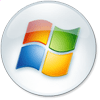
Shocking results about illegal software use

 Microsoft is celebrating Global Consumer Protection Day on November 17, drawing attention to the dangers of illegal software use for the third year in a row. Research by the Harrison Group and Lionbridge has focused on the dangers and inefficiencies that can result from someone installing pirated software on their computer. The proportion of illegal software is still high in Hungary, but the benefits of legal sourcing are being recognized by more and more users.
Microsoft is celebrating Global Consumer Protection Day on November 17, drawing attention to the dangers of illegal software use for the third year in a row. Research by the Harrison Group and Lionbridge has focused on the dangers and inefficiencies that can result from someone installing pirated software on their computer. The proportion of illegal software is still high in Hungary, but the benefits of legal sourcing are being recognized by more and more users.
A Harrison Group summary shows that a quarter of non-legitimate operating systems became infected already during installation by automatically downloading viruses from the Internet. A quarter of counterfeit software could not download updates at all, and their power requirements tripled when running applications compared to their legal software. Legal software loaded much faster, and it took less time to open and save documents. The results thus show that the legal use of software significantly improves the efficiency of working with a computer.
The tests also revealed that illegal versions of both Windows XP and Windows 7 already transmitted various viruses to computers during installation.
According to a 25-user study by the Harrison Group-listed White Paper, 55 percent of people are aware of the dangers of using illegal software, yet 10 out of 4 software programs are still being installed on computers illegally. More information about Harrison Group research can be found here.
However, the use of illegal software does not only pose dangers to users. According to an analysis published by the research company IDC in May 2011, the proportion of illegal software in Hungary is currently 41 percent, which also has a very serious negative impact on the country's economy. According to IDC's research, if illegal software use in Hungary were to decrease by 10 percentage points, it would have the following positive effects: nearly 900 new jobs would be created, Hungary's GDP would increase by more than HUF 49 billion, and tax revenue would increase by almost HUF 12 billion.
“Our goal is to regularly raise awareness of the dangers lurking for users as a result of using illegal software. We attach great importance to raising consumers' awareness of the data security risks that lie ahead of them and to advising them on how to use IT tools as efficiently as possible. Businesses also have a serious responsibility to provide those who trust them with the right advice and legal products. ” - emphasized Dr. Gergely Jinich, Microsoft's Head of Intellectual Property Protection.
“As a fully Hungarian-owned SME operating in the IT industry, we are aware of the hard work behind software development. Our services are based on local intellectual capital and creativity. And one of the foundations of our marketability and growth is the regulatory environment. Just as we expect the market to comply with intellectual property protection rules for the products and services we produce, we do so in our day-to-day practice. We only procure the company's software legally, which is very important for the stability of our data and operations. We have just started the introduction of conscious software management, and we believe that not only can we increase the reliability of our devices, but by rethinking our procurement policy, our operation can be much more optimal, ”said András Fazekas, Marketing Director of RF Frequency Identification Technology.
Most economic users are also aware of the economic impact of software counterfeiting. According to a survey of the Hungarian population conducted by the National Anti-Counterfeiting Board (HENT) this year, nearly 60 percent of people are aware that the budget is losing serious revenues due to counterfeiting. Nearly half of respondents think that counterfeiting will lead to job losses. Nevertheless, 26 percent of the total population would download film, music content, or software from the Internet from unauthorized sources. 6 percent would do this at any time, while 20 percent might do so. Among young people, the proportion of those who do not refuse to download is much higher (40 per cent). 34 percent of young middle-aged people, 18 percent of older middle-aged people, and 6 percent of older people do not refuse to download illegal content.
Source: Microsoft












